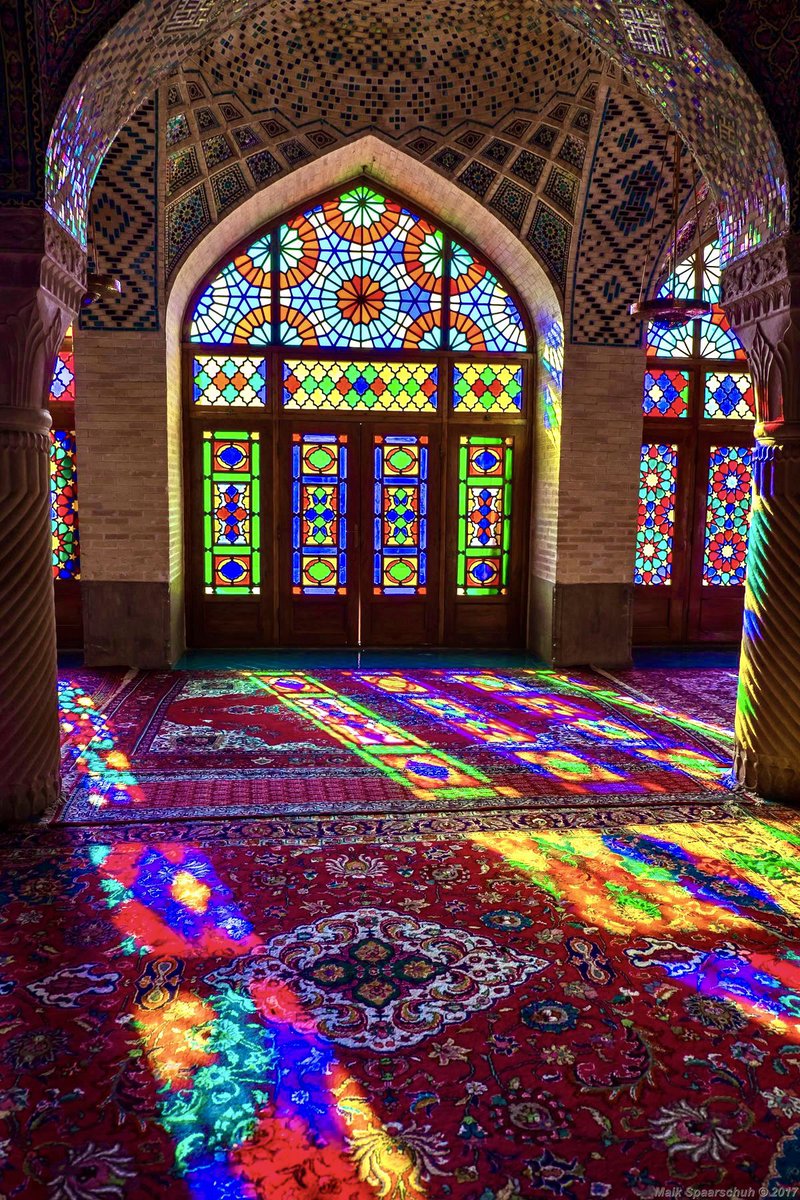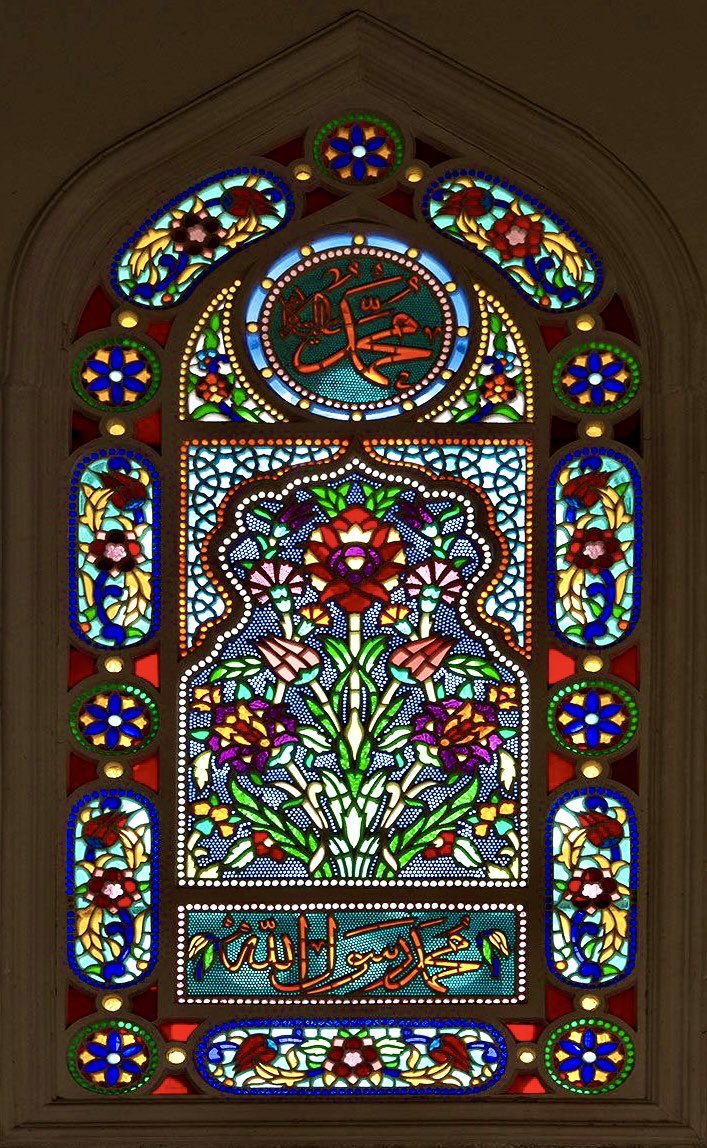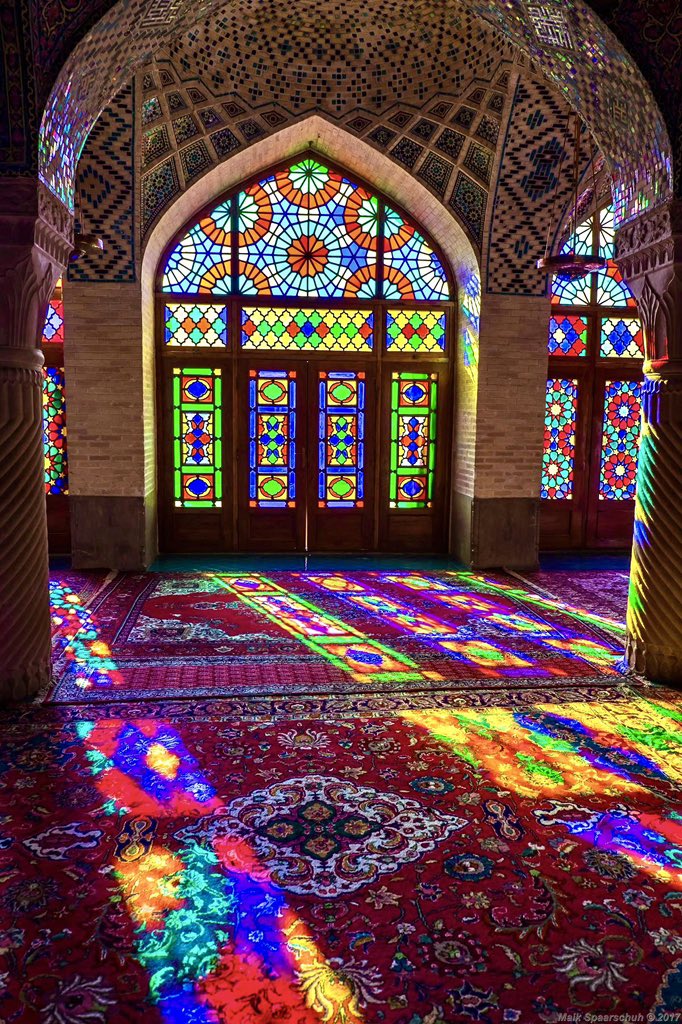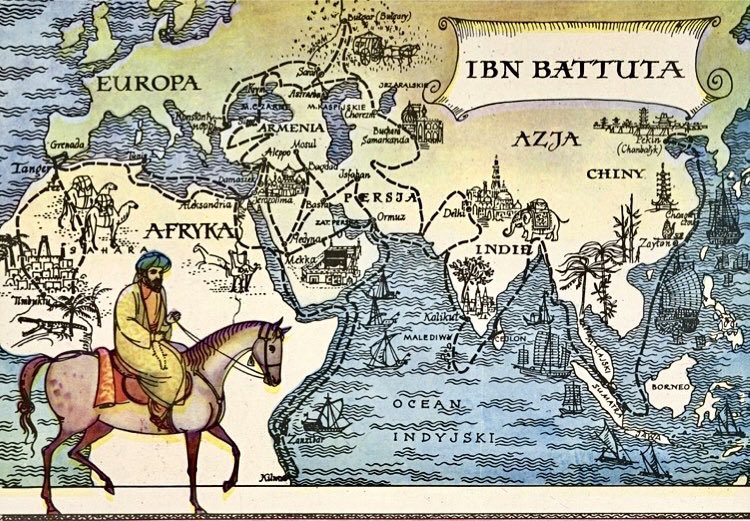One of the oldest libraries in the world — Al-Qarawiyyin library, was founded by a Muslim woman more than 12 centuries ago! Libraries developed in the Islamic Golden Age due to a commitment to literacy & knowledge.
For #WorldBookDay a thread on libraries in Islamic history…
For #WorldBookDay a thread on libraries in Islamic history…

1/ Al-Qarawiyyan Library, Fez, Morocco
Founded by a Muslim woman, Fatima El-Fihriya in 859, it is one of the oldest libraries in the world & the oldest library in Africa. It also holds the distinction of being the world’s oldest working library, & is still in use today…
Founded by a Muslim woman, Fatima El-Fihriya in 859, it is one of the oldest libraries in the world & the oldest library in Africa. It also holds the distinction of being the world’s oldest working library, & is still in use today…

1.1/ The Al-Qarawiyyan Library houses a collection of 4,000 rare books & ancient Arabic manuscripts written by renowned scholars of the region. The manuscripts include a 9th century version of the Quran and a manuscript on Islamic jurisprudence written by philosopher Averroes 

2/ Bayt Al Hikma (House of Wisdom), Baghdad, Iraq
Founded by Abassid caliph Harun al-Rashid (786–809) it was a research & education centre. It culminated under his son Caliph Al-Mamun (813–833) who is credited with its formal institution & flourished from 9th to 13th centuries…
Founded by Abassid caliph Harun al-Rashid (786–809) it was a research & education centre. It culminated under his son Caliph Al-Mamun (813–833) who is credited with its formal institution & flourished from 9th to 13th centuries…

2.1/ Al-Mamun bought scholars from across the world to share information, ideas, & culture in the House of Wisdom. Besides Muslim scholars, Hindu, Jewish & Christian scholars studied here, translating books into Arabic
Al-Ma'mun sends an envoy to the Byzantine emperor Theophilos
Al-Ma'mun sends an envoy to the Byzantine emperor Theophilos

3/ The House of Knowledge, (Dar al-Ilm, or Dar al-Hikmah) Cairo, Egypt
Founded in 1005 AD under the sixth Caliph of the Fatimid dynasty, Al-Hakim bi-Amr Allah. Here many subjects, including astronomy, medicine, geometry, theology & grammar were taught by paid scholars...
Founded in 1005 AD under the sixth Caliph of the Fatimid dynasty, Al-Hakim bi-Amr Allah. Here many subjects, including astronomy, medicine, geometry, theology & grammar were taught by paid scholars...
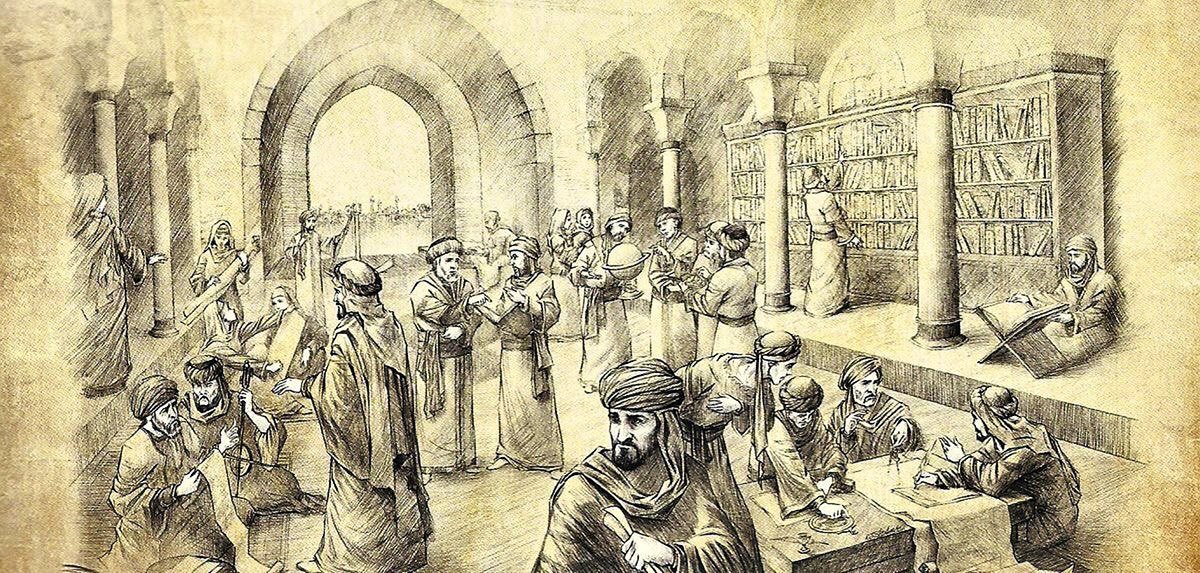
3.1/ At The House of Knowledge in Egypt reading rooms were open to all those who wished to visit. Books were collected from all over the world on diverse subjects. At its height, the library held over 100,000 volumes, including 18,000 manuscripts on early civilizations. 

4/ Cordoba Library, Spain
Lubna of Cordoba (984) was director of the library with 400,000 volumes. She was responsible to reproduce, write & translate new volumes. She was also palace secretary of Caliph Abd al-Rahman III (961) and his son al-Hakam (976)...
Lubna of Cordoba (984) was director of the library with 400,000 volumes. She was responsible to reproduce, write & translate new volumes. She was also palace secretary of Caliph Abd al-Rahman III (961) and his son al-Hakam (976)...

4.1/ According to Arab chronicles at the time of Al-Hakam II, there could be in some areas of Cordoba library more than 170 women copying books, which not only gives the idea of culture, but also the place of women in the reign of enlightened Caliph. 
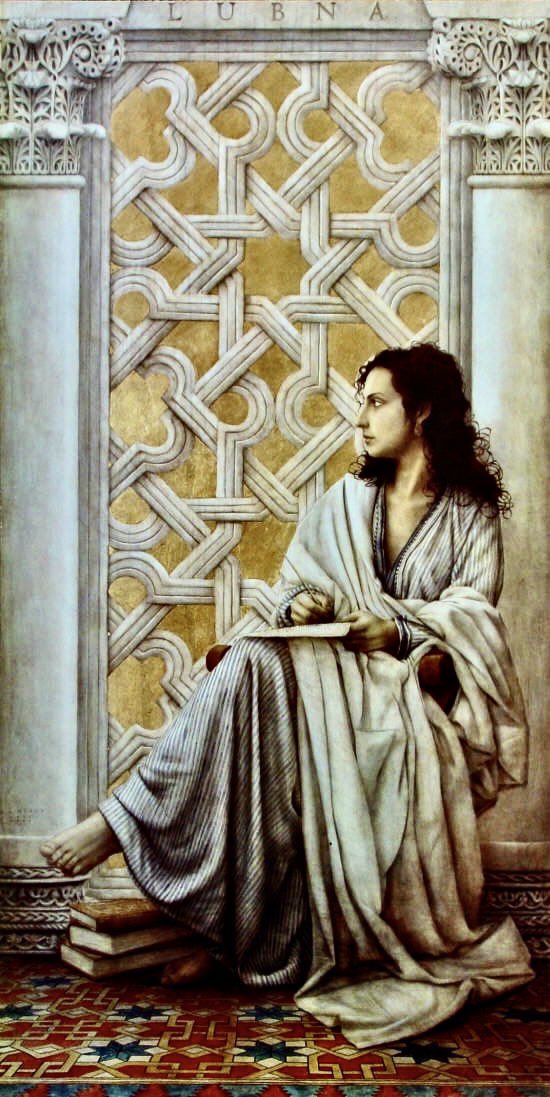
5/ Adud al-Daula was the Emir of the Buyid dynasty (934-1062) In Shiraz he established a magnificent library with books written from the beginnings of Islam to his time. The building was situated inside the royal palace. Only reputable scientists had access to the library. 

6/ The Central Library of Astan Quds Razavi, Mashad, Iran.
Established before 1457, it holds over 1.1 million volumes. It is an international center for Islamic research, containing numerous manuscripts and rare works of antiquity of Islamic history.
Established before 1457, it holds over 1.1 million volumes. It is an international center for Islamic research, containing numerous manuscripts and rare works of antiquity of Islamic history.

7/ The Library of Ğāmi’ Banī ‘Umayya al-Kabīr, Umayyad Mosque, Syria
Founded by Caliph Walid I (715). Mashaf-e-Osmani copy of the Quran prepared by Hazrat Osman (r.a) was stored in this library. Ibn Batuta saw a copy of this Quran which was sent by Hazrat Osman (r.a.) to Syria.
Founded by Caliph Walid I (715). Mashaf-e-Osmani copy of the Quran prepared by Hazrat Osman (r.a) was stored in this library. Ibn Batuta saw a copy of this Quran which was sent by Hazrat Osman (r.a.) to Syria.

8/ Bukhara Library, Uzbekistan
The Samanid ruler, Sultan of Bukhara Emir Nuh ibn Mansur (976-997) established a great library in Uzbekistan. Famous physician & poet Ibn Sina (1037) gained much of his knowledge here. (Image to illustrate beauty of Bukhara - not the library)
The Samanid ruler, Sultan of Bukhara Emir Nuh ibn Mansur (976-997) established a great library in Uzbekistan. Famous physician & poet Ibn Sina (1037) gained much of his knowledge here. (Image to illustrate beauty of Bukhara - not the library)

9/ Library Museum at Hast Imam Square, Taskent, Uzbekistan
The complex includes the functional Mosque of Tilla Sheikh, Barakhana madrasah and the Mausoleum of Abu Bakr Shashi. In the library-museum, there is a unique collection of sacred books and precious manuscripts.
The complex includes the functional Mosque of Tilla Sheikh, Barakhana madrasah and the Mausoleum of Abu Bakr Shashi. In the library-museum, there is a unique collection of sacred books and precious manuscripts.

10/ Library of Ghazni, Afghanistan
Established by Sultan Mahmud (998-1030) it was considered one of the best in the world. A patron of the arts, he attracted poets from Central Asia including Uzari, Asadi Tusi, & Unsuri. Poet Ferdowsi (1020) presented the poem Shahnameh to him
Established by Sultan Mahmud (998-1030) it was considered one of the best in the world. A patron of the arts, he attracted poets from Central Asia including Uzari, Asadi Tusi, & Unsuri. Poet Ferdowsi (1020) presented the poem Shahnameh to him

11/ Libraries in Turkey
The most significant development in the history of Ottoman libraries came with the establishment of the first independent library in Istanbul by Köprülü Fazil Ahmed Pasha in 1678. This library, had its own building, staff, and budget.
The most significant development in the history of Ottoman libraries came with the establishment of the first independent library in Istanbul by Köprülü Fazil Ahmed Pasha in 1678. This library, had its own building, staff, and budget.

12/ Süleymaniye Library, Turkey
The largest manuscript library in Turkey & preserves one of the world’s most extensive collections of Islamic manuscripts. The library is situated in two of the medreses built in the 16th century They have existed since the complex’s establishment
The largest manuscript library in Turkey & preserves one of the world’s most extensive collections of Islamic manuscripts. The library is situated in two of the medreses built in the 16th century They have existed since the complex’s establishment

13/ Emperor Jalal al-Din Akbar (1543-1605) established a new library for education of all women in Fatehpur Sikri. The Imperial Library was located in the big hall of the Agra fort. The volumes numbered 24,000 valued at $3,500,000. Every author was obligated to send a copy. 

14/ Library of Zaib al-Nisa, Mughal India
Mughal princess Zaib al-Nisa’s (1638-1702) was an excellent scholar. Her royal court was an academy (Bait al-Uloom) where scholars in every subject compiled & composed books. She had a large collection in her library. Her tomb in Lahore
Mughal princess Zaib al-Nisa’s (1638-1702) was an excellent scholar. Her royal court was an academy (Bait al-Uloom) where scholars in every subject compiled & composed books. She had a large collection in her library. Her tomb in Lahore

15/ Library of Tipu Sultan (1752-1799) Ruler of Kingdom of Mysore, India
He founded a school for liberal education, with a library on a wide array of subjects. All Sultan volumes were bound in leather. There was a training college for military officers, with a large library...
He founded a school for liberal education, with a library on a wide array of subjects. All Sultan volumes were bound in leather. There was a training college for military officers, with a large library...

15.1/ In his personal library he had a rare copy of the Quran calligraphed by Emperor Aurangzeb, which found its place in British Royal Library in Windsor Castle UK. Upon his defeat in 1799, about 2000 books, some bound with jewels were recovered by the English 

16/ Libraries in Timbuktu
From 14th century–until 17th century, Timbuktu was a religious & trade center. Mosques, such as the famous Sankore Mosque, were were also important centers of education & scholarship and had libraries containing manuscripts
From 14th century–until 17th century, Timbuktu was a religious & trade center. Mosques, such as the famous Sankore Mosque, were were also important centers of education & scholarship and had libraries containing manuscripts

17/ Djingarey Ber Mosque / learning institution, Timbukt, Mali
Built in 1327 by Mali Emperor, Mansa Musa and the housed oldest, and perhaps most famous, library in Mali, 'Imam Ben Essayouh' library. At the height of Songhai Empire, Timbuktu had 25k students.
Built in 1327 by Mali Emperor, Mansa Musa and the housed oldest, and perhaps most famous, library in Mali, 'Imam Ben Essayouh' library. At the height of Songhai Empire, Timbuktu had 25k students.

18/ Mamma Haïdara Commerative Library, Timbuktu, Mali
The number of manuscripts in the collections has been estimated as high as 700,000. An illustrated Koran from the 12th century is seen inside the glass case in front of Abdel Kader Haidara who is the curator.
The number of manuscripts in the collections has been estimated as high as 700,000. An illustrated Koran from the 12th century is seen inside the glass case in front of Abdel Kader Haidara who is the curator.

Discover more about Libraries in the Islamic Golden Age:
baytalfann.com/post/libraries…
baytalfann.com/post/libraries…
• • •
Missing some Tweet in this thread? You can try to
force a refresh


